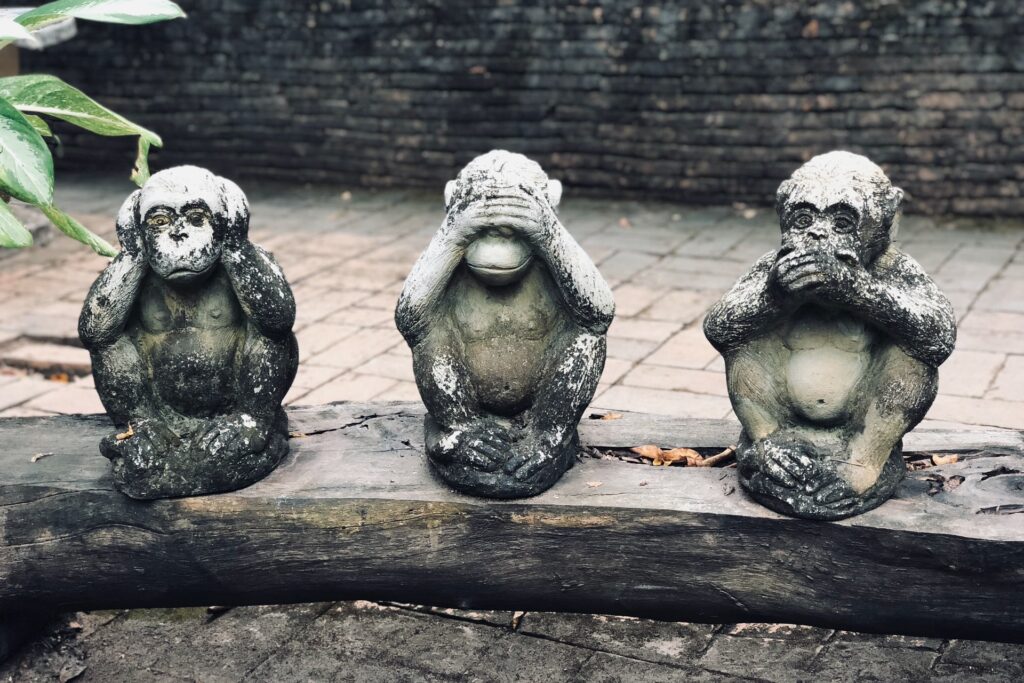
Games of Chance or in modern terms gambling is something forbidden by most of the mainstream religions. This is due to the fact that it is most commonly associated with money, greed, and competitiveness. However, in Christianity for example, there is no explicit mention of gambling or online games of chance anywhere. Well, to be fair it is due to obvious reasons since when the holy books were written no such thing existed. But, a lot of people are using this as an excuse to partake in these actions. Let’s follow this up a bit.
Is Gambling Allowed in Religions?

First of all, we need to differentiate between religion and faith. Faith is something you personally believe. It exists inside of us whether we tell someone about it or not. Religion is the organized part of faith. This means that when a group of people with similar faiths gather together to partake in some kind of activity, rituals, etc. this is called religion.
In this article, we will not be discussing faith. As it is something very personal. One’s actions, thoughts, and beliefs are more than usually determined by faith rather than religious dogma. These two may align in different aspects, however, we will be talking about the dogmatic approach further in the article.
1. Christianity

Let’s start with the most mainstream one in the western hemisphere of the world, Christianity. Although this religion has various schools of belief the holy books and the god they worship is the same. As it stands, gambling is not specifically mentioned neither in the Bible nor in any other holy book including the words of Jesus himself. If we go by the popular saying that “everything that is not forbidden is allowed” then yes gambling would be absolutely possible for any Christian.
However, The church itself has come out stating that it may not be the heaviest sin out there but it still would be classified as such. This is due to the fact that gambling is more than usually associated with money and greed. Jesus himself was against the concept of money. He has stated a couple of times in his speeches that one should never seek opportunities to gain wealth. Since betting is a way of making money it would easily fall under this category.
Nevertheless, we see a lot of Christian countries all across the world that have gambling legalized. For example, Russia boasts around 4000 casinos even though a lot of them were closed due to a law voted in in 2007 that has created specific zones in the country that allow gambling. Even though the Russian Federation has Orthodox Christianity as its state religion and most of the people identify as followers of the church as we can see it is still not forbidden.
However, this can be attributed to the fact that the state government and laws are falling further and further away from the teachings of Christianity. Secularism is extremely popular and there are harsh boundaries where the government doesn’t interfere with the doings of church and vice versa. Goes without saying that since it is legal and permitted there are many people who enjoy the games of chance. This has caused a surge of popularity of online casinos like Spinia all across the world since it goes without resistance from the religious institutions.
Lottery games like bingo are also extremely popular in countries like the United Kingdom, the United States of America, and the majority of Europe. Funnily enough, there are some instances where the state institutions use the name of God in association with money. For example, even though Jesus was against monetary gains and seeking wealth the phrase “In God we trust” is still printed on every United States Dollar in existence.
2. Buddhism

For western folks, eastern religions do look much more like a philosophy of life rather than an actual religion. This is due to the fact that they present themselves in a much more relaxed manner. Buddhism is a very good example that treats games of chance with quite a high tolerance. Much like Christianity Buddha in his mantras has never explicitly forbidden gambling. This means that it’s automatically permitted for some people. Siddhartha Gautama, or Buddha, himself was very much tolerant of such subjects. This is reinforced by the notion that this religion has nothing against light and harmless types of games.
Dare I say, even more, people are encouraged to relieve their stress with such activities. However, China, for example, which currently nets the highest Buddhist population of 244 million people (almost 20% of the population) has gambling strictly forbidden with it being allowed in specific regions like Macau, which is commonly called the Las Vegas of the East.
Much like Christianity, Buddhism also has the “holy laws” which were presented by Buddha himself. There are five different precepts, which go about what is forbidden in detail. Gambling is not on the list. This may be attributed to the fact that gambling was extremely popular in India when Siddhartha Gautama was still young and forbidding such activities wouldn’t be very wise of him. Nevertheless, this is neither a justification nor can it be used as reasoning due to the fact that we just do not have enough information about his life and the decision-making process he underwent.
It is worth noting that Buddhism heavily relies on the concept of karma. Everyone is familiar with this concept even if they have had nothing to do with Buddhism. The “mechanics” go quite easy as the more good you do the better karma you will have, which will manifest itself in the overall luck or just good things happening around you in a natural manner. Bad karma is associated with problematic events unfolding around the person. Whatever you do comes back around in an equal manner and this works both ways for good and evil. Gambling is pure luck most of the time. Without it, you won’t be able to win anything. Thus, it is fair to say that the better person you are the more likely you are to win.
3. Islam

This one is going to be a short one. It should be very much apparent to everyone that considering the number of restrictions Muslims put on themselves that gambling would also not be allowed, right? Well, yes, but no at the same time. The idea is that it is most definitely considered a sin. There are numerous mentions of gambling (Maisir) in Islamic literature.
It is also known that Prophet Muhammad allowed his armies to bet on horses, shooting arrows, and camels as it was considered a good way to keep the army’s morale high and its people happy. The religion is full of conquest and Muhammad himself was a strong general leading army from town to town conquering the land.
All in all, this doesn’t mean that Islam tolerates gambling. In modern reality, games of chance are strictly forbidden in most of the Islamic world. It is the least tolerable religion towards gambling. As it is one of the most spread out religions in the world, we believe it to be of utmost importance to include it in this list. Again, even though the Quran talks about the advantages of gambling for the army in some very specific aspects it to no extent means that it is allowed nor encouraged by the holy book.
Conclusion
In conclusion, there are numerous aspects to games of chance. Some countries like Norway have politicized the whole sphere so much that the government owns all of the gambling facilities. History shows that a lot of times the political opinions and initiatives go against the principles of religious institutions.
However, with the imminent popularity of atheism as well as numerous other religious people all across the world that we have not mentioned in the article like Judaism, Hinduism, and all of their smaller branches with their own vision on what is right and what is wrong it is quite impossible for a state government to come up with a solution that suits everything.
This is why the notion of secularism has become such a strong initiative in the world and why a lot of people, even though they live with one or the other religious beliefs, still partake in such activities due to their subjective view of the religion and principles of faith that they adhere to.







